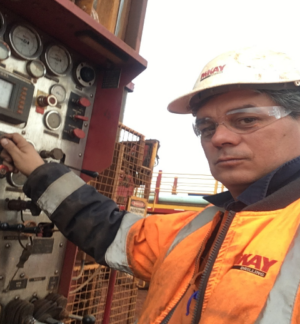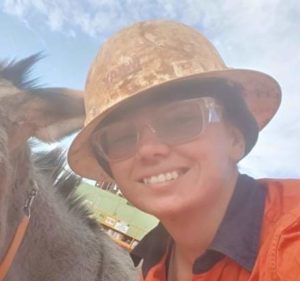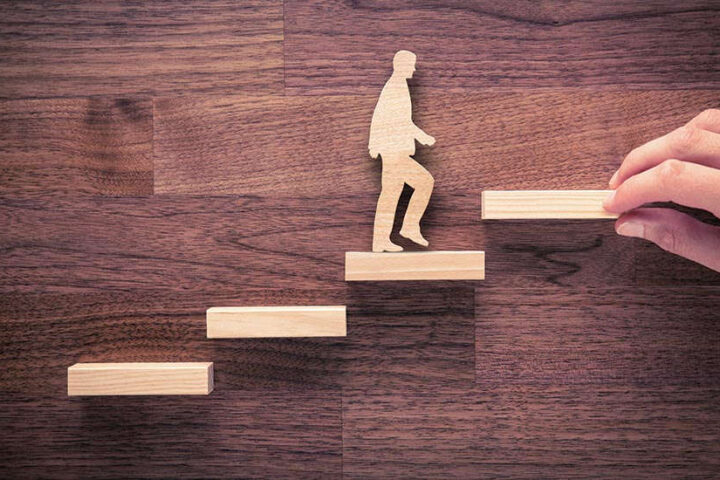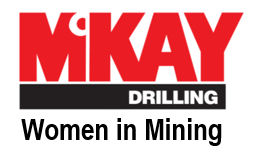Ray has worked for McKay Drilling for the past six years as a Supervisor and is currently Supervising at Hope Downs 4.
Ray was born in New Zealand and grew up in Hamilton, North Island. Ray had a rough start to life and lived in a children’s home from the age of 8 with his sibling until he was 14 and found a foster home. Ray left school at the age of 16 to pursue a Carpet Apprenticeship for 3 years. He worked for the next 8 years on an Abattoir and then moved on to building boats and trailers for 4 years.
In 1999, Ray packed up his life in New Zealand and emigrated to Australia; little did he know that he would have a successful career in the Drilling Industry. On arrival in Perth, Ray did some casual work and then decided he would try the FIFO Life, and that is where his drilling career began. Ray has worked for several drilling companies like Grimwood Davies, Boart Longyear and Strike Drilling before coming to McKay Drilling.
During our interview, we asked Ray the following questions:
Tell us about the Drilling Industry when you were an Offsider and working on a rig?
It all started way back in 2003 when I got a phone call from John Sing (Zingy), Grimwood Davies. He would become my mentor, who taught me a lot about drilling and life in general; unfortunately, he is no longer with us. Later on, he was called the Godfather of Drilling; he had a wealth of knowledge.
He said, “Get on a train from Perth and head to Kalgoorlie and I’ll pick you up from the train station”. So I was taken to our office, given a 30min induction and was ready to go. I was told to “Get in a truck and drive to Laverton, 400kms north of Kalgoorlie; your Driller will meet you at Leonora garage”. I got there at 9pm that night, and that was my introduction to drilling.
It was pretty tough back when I started, you either liked it, or you didn’t. I spent the best part of 8 years living and working out of a caravan and earlier years out of a swag—long hours, up to 14hours during the summer months. No Chef back then, so we did all our own cooking, but I must say we did eat like kings.
As mentioned, there were no Fitters or Supervisors in the earlier years. You had to learn how to fix everything. Doing fuel and water runs were done after hours, so it was grabbing a six-pack, and off you went to fuel up and get water for the next few hours. No phones back then, and if we had one, there was no reception anyway, so there was no contact with anyone for days, weeks on end. The only chance I had to call my family was when you went to do a shop, so it was a quick call from a payphone. Codan radio was the only form of comms we had, but that could only be used to contact office for stores, plods, emergencies and urgent parts. The first thing we would do when we got to a drill program was drill a hole for our drilling water, install a pump and water tank then it was off to drill a 20 metre hole for our long drop toilet. We carried a toilet in the form of a bowl with us; nothing beats having your own toilet in the middle of the bush and a pile of picture mags to read.
There were no rosters when I started, so we spent weeks out there. Out of the blue, the Driller would say, “you’re flying out tomorrow” for a break after doing 9 week swings. I think the longest swing I did was 11 weeks. Things started to change when we got a contract with Rio Tinto. We could do 3 week swings with an RDO after 14 days. Nowadays, it’s pretty standard across most sites where you can only do 2 weeks.
Why do you love the Drilling Industry?
After my first swing, I knew this was the job for me. I always liked knowing how things worked, and if I had a chance to dismantle something to see how it worked, I would. Drill Rigs always broke down, so I learnt pretty quickly how to fix them, and there were no Fitters or Supervisors in the field back when I started, so if you wanted to get paid, you got the rig going as fast as possible.
Drilling has also provided a better lifestyle for my family; I was determined to give my kids the opportunities that I didn’t have as a kid. In addition, this industry has allowed my partner of 34 years to stay home and raise our two youngest daughters, who I call Mozzies, because they were both born in Australia, something we could never have been able to do if we stayed in New Zealand.
I have been and seen many places around Australia due to where I have had to drill, places no one would ever get to see, and the experience has been priceless. The peace and quiet while living out of swags in the middle of nowhere, the cold winter nights sitting around a fire having a few beers after a hard day’s work talking guy stuff, the hot summer nights and drinking yourself to sleep because our swags didn’t have aircon, it was what we believed the only way to get to sleep during the hot summer months. The fires at the rig all day to keep you warm in winter. I would give up my donger to go out in a caravan again, no phone reception, no visitors, just you and your 2 Offsiders and the wildlife for weeks on end drilling up the earth. The week off you get to spend time with your family and the long breaks you get over the Christmas period is why I also like the Drilling Industry.
How did you become a Supervisor?
After the GFC hit the world, I became a Supervisor. Work dried up pretty quickly, and there wasn’t any work out bush. I wasn’t interested in drilling for major clients like Rio or BHP. I just wanted to drill out bush without any hold-ups. I was offered a job as a Supervisor at a BHP site and was told when I was picked up that I would return to drilling.
Somehow that didn’t happen, so I have been supervising ever since. It was challenging at first, but with training and help from my superiors in the office and field, I think I managed to work out how to become a good Supervisor over the years.
What would be your advice to someone that is thinking of coming to work in this industry?
It’s a harsh environment out there, working 12 hours a day. It can reach 40+ degrees for months on end. The dirt, dust and flies drive you crazy. Your 2 weeks away from your family is probably the hardest to deal with.
The benefits, you get to have a week off after your swing to spend with family. Financially this job can set you up and give you a good lifestyle if you work hard and work your way up the chain.
What would you like to tell all our current employees working for us as they are working their way to becoming Driller/Supervisor?
All I can say is if you work hard, you will get rewarded for it. My honest opinion about becoming a Driller is to spend as long as you can offsiding, learn everything possible from your Driller/Supervisor, ask questions frequently, safety should always be at the top, learn how all your equipment works, how everything works downhole, how your air works, compressors etc. and even if it means researching after hours, knowledge is power.
We weren’t even allowed to touch or look at a lever when I started for 3 years; this helped me to become what I believe, a much better driller in the end. I think people are getting on the levers way too early these days. A good Driller is not someone who just goes out there and smashes metres; there’s more to it than just drilling the metres. Drillers are Supervisors, too; you’re responsible for your work area, the crew and anyone coming into your work area.
I have been supervising for a while now, and I am still learning and have learnt some valuable lessons along the way.
Below are a few things that might help you out whether you’re a Driller or Driller becoming a Supervisor;
- Responsibility – Total ownership even when the outcome is undesirable.
- Accountability – Your ability to notice and not walk past deadlines or commitments will have the team operate at a high level.
- Vision – Great leaders turn ideas into action.
- Self-Belief – Expectation of success in most situations.
- Ability to listen – There is nothing more attractive to a member than a leader who listens.
- Organisation – Effective leaders always know where things are.
- Loyalty – Loyalty means the leader serves the organisation, not the individuals in it.
- Personal Happiness – When an individual is happy with his current life circumstances, he can look at the future without fear that may hinder.
What are your hobbies after work or on your roster days off?
After work on-site, it used to be the Gym, but I’ve been slack in that area lately. I am about to return as winter is here, so look out CT is back. If it’s not the gym, it’s normal summertime beers with the guys after a long day in the heat.
On R&R, it’s family time. Any chance to take the caravan out, we are gone. Can’t beat the BBQ, beers, fishing and meeting people while camping. If we are not camping, then this means we have sport going on. Nothing beats watching your kids excel at sports. If there’s any spare time between family and kids sport, watching sports on TV is my favourite, with league being my first preference, but I will pretty much watch any sport if the league is not on.
As you can see, Ray has worked for more than 19 years now in the Drilling Industry, and we would like to thank him for taking the time to be interviewed. We also would like to thank him for his insight into the industry and his advice on career progression. Thanks for the last 6 years, Ray, and we hope you retire here at McKay Drilling.
